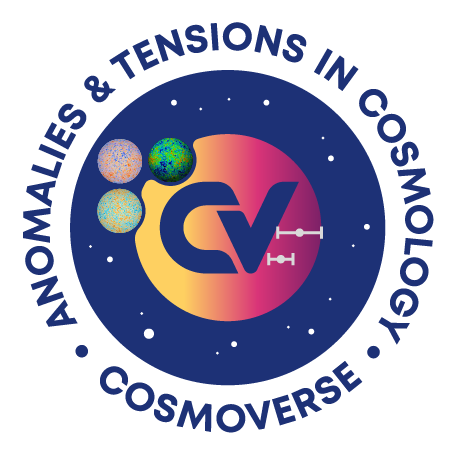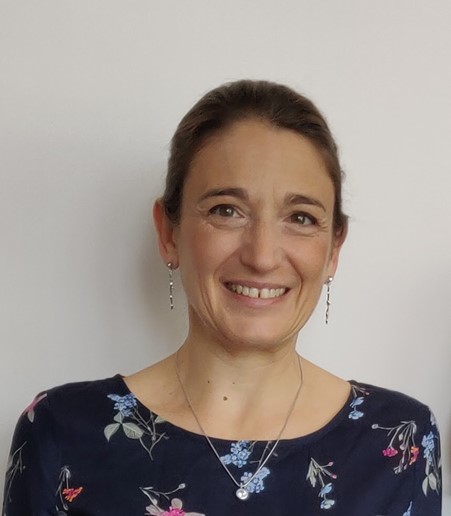What is your name, affiliation, academic position, and job title?
Licia Verde, ICREA and ICC-UB (Instituto de Ciencias del Cosmos, Universitat de Barcelona (icc.ub.edu)).
What is your journey? (Where did you live, learn and work?)
I am originally from Venice (Italy) where I grew up. I studied Physics in Padova, with (overall) a year and a half abroad in Edinburgh (UK), where I also later on did my PhD. I held postdoctoral positions at Princeton and Rutgers (NJ, USA) and I was Faculty at University of Pennsylvania (PA, USA) before moving to Barcelona with an ICREA (ICREA.cat) position.
What is your field of research and/or what project are you involved in?
I work in Cosmology and my expertise is in large-scale structure and how to connect observational quantities to theory (and vice-versa).
I started off my career by measuring and interpreting higher-order correlations (the bispectrum, in particular) of the Anglo-Australian 2dF (two-degree field galaxy redshift survey). After that, I had the once-in-century opportunity to become part of the WMAP science team and work on the analysis and interpretation of the initial data releases of the satellite data. Then it was back to galaxy surveys with Sloan’s SDSS. I am now involved with the DESI survey (analysis and interpretation) but also, I have been thinking for a few years (almost a decade!) now about the Hubble tension.
I find it quite fascinating how transparent the connection between theory and observations can be in the realm of large-scale structure. There’s a crucial statistical layer (after all the theory really can only predict statistical quantities) but beside that the connection is really quite transparent.
Yet, in cosmology I think we relay a lot on models, maybe too much. Our favourite model (the LCDM) is indeed extremely successful, but it must be an effective model at some level, it seems therefore plausible that at some point, when the data become good enough, constraining enough, it will start being insufficient. But if we assume the model to start with in order to make sense of the data… how can we be sure that we are not getting ourselves into a circular argument?
What are your research plans?
I never know how to answer this question. Theorists have a luxury: they can do whatever is interesting at the time. And that mostly turns out to be a really good plan, leading very often to interesting results. However, one cannot really say that too openly, especially not to funding agencies or in job interviews! One needs to have a 3-year or 5-year plan… As Eisenhower reportedly said “plans are useless but planning is indispensable”.
So DESI is coming on line and that is going to take a lot of my (and my team’s) research time in the next few years. But at the back of my mind the question above remains: how can we be sure that we are not getting ourselves into a circular argument? How can key aspects on the LCDM model be tested? How can we convincingly demonstrate which model aspects are robust and which ones have wiggle room to play with?
How does CosmoVerse fit within those plans?
Are tensions indications that our favourite model is showing some limitations? And what wiggle room is there to explain these? This I think is perfectly aligned with CosmoVerse …
What new skills would you like to learn in the next year?
I’d like to learn better python programming skills. But it is hard to carve the time to do that.
What are the most exciting open questions in your research area?
Are dark matter and dark energy really what we think they are? And is there anything else of relevance which is not included in the standard cosmological model? And if the model actually works well enough, can it be used to learn about fundamental physics by looking up at the sky? If we do that, how confident are we that our interpretation is correct?
What advances or new results are you excited about or looking forward to?
The next few years will see massive galaxy redshift surveys covering an unprecedented fraction of the observable Universe (think DESI, Euclid just to mention two). These are bound to produce interesting results, some which we expect (e.g., neutrino properties, universe expansion history, growth of perturbations etc.) some which will be unexpected. I think this is very promising and exciting.
What is your view on cosmic tensions? How does your work connect with this open question in the community?
There is this nice snippet from an interview to Feynman
“The thing that does not fit is the things that is most interesting”; it is when things do not match your expectation that there is likely something new to be learnt. Tensions are indeed things that do not fit, so there’s something to be investigated and very likely something to be learnt.
But the difficult question is always, what is there to learn? Of course, we would all like to discover “new physics”, but “extraordinary claims need extra ordinary proofs” (Sagan), what is an extra-ordinary proof and how does one find it or build it?
What role do you think a community network like CosmoVerse can play in developing theoretical astroparticle physics and cosmology?
We tend to become over-specialized very early on in our career. This is needed to be competitive, but it makes it very difficult to have a broad vision, and to connect the dots that need connecting. We have also become (paradoxically) very isolated/polarized (again competitiveness fosters it).
A community network like CosmoVerse can help offset some of these unintended consequences of the research/academic system the way it is built.
What’s your favourite food? Why?
Chocolate, is this even a question?
What non-physics interests do you have and want to share?
I got interested in the interplay between (hard) sciences and the real human world. In hard sciences the game is clear (relatively), the rules of the game are clear. But in the real world, we deal with humans, and then the rules of the game are not necessarily logical nor clear, the objectives and the priorities may be multiple, not aligned and sometimes conflicting. I did a course in science diplomacy (even got a diploma) where basically this plays out at a macro-scale even above the national scale…
I am also interested in open science. I have been one of the arXiv scientific advisors for a few years now and I am following closely the development of the open access movement and its consequences. Unfortunately, I think that the way the system is built, the way promotions and rewards are set up, make it extremely difficult to make serious advances on the open science front.
In your view, what’s the most important challenge that humanity faces currently?
Sustainability. Not just because my surname means green ;). The whole climate and conservation issue is probably the most visible result of not building our society rooted on the principle of sustainability.

